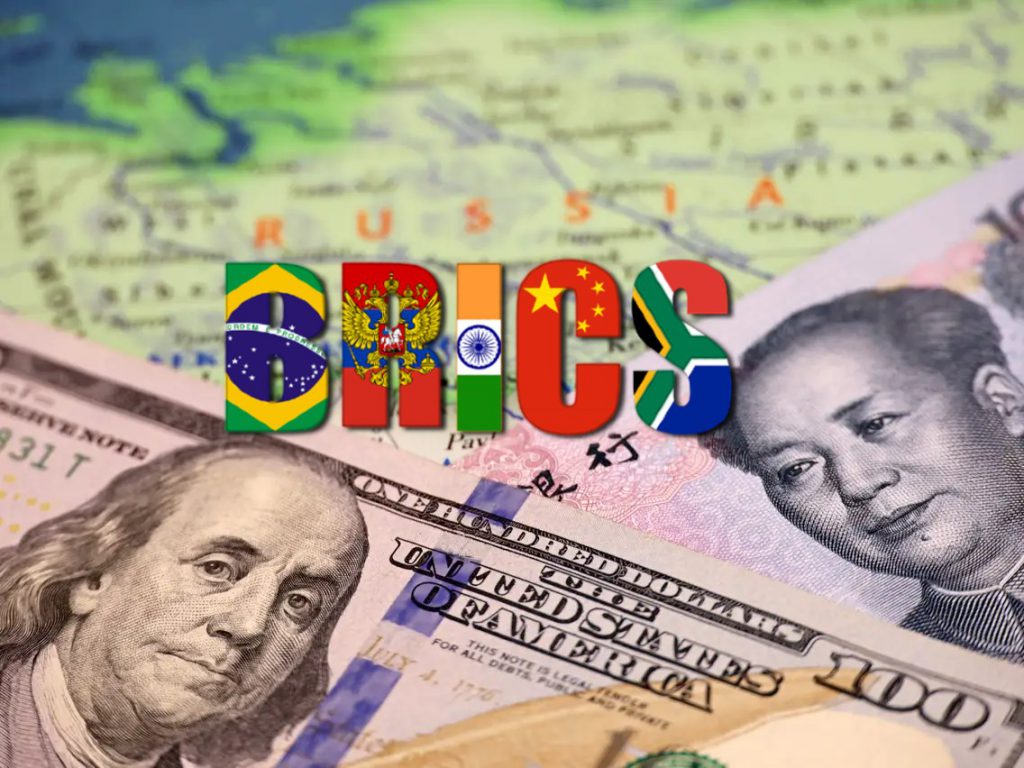The US, UK, and Germany are towering economies that control a major portion of the global financial ecosystem. From banks to institutions and policies, the trio, who are a part of G7 command every sector in the markets. Out of the blue this year, a well-known competitor, the BRICS alliance, has packed a punch into G7 and the US, threatening to uproot its status as the global leader.
Also Read: BRICS Is Becoming Richer Than G7
While the idea of ending reliance on the US dollar was at first laughable, the idea is shaping into reality. BRICS aims to dethrone the US dollar as the world’s reserve currency by giving importance to local currencies instead. The alliance looks to end dependency on the US dollar and provide no means to fund its deficit.
Read here to know how many sectors in the US will be impacted be BRICS completely stops using the dollar. The economic system is experiencing a paradigm shift where developing countries are looking to seize power from the traditional developed nations.
Also Read: BRICS: China Sells the Most U.S. Assets Its Ever Sold in 4 Years
Foreign Institutional Investors Confirm BRICS is Shifting Global Power Dynamics

The recent Foreign Institutional Investors (FII) panel acknowledged in a meeting that BRICS is indeed shifting the global power dynamics from the West. Several sessions at the FII focused on the rising BRICS and the challenges the US and Western allies would face.
Also Read: 3 BRICS Countries Dump $18.5 Billion in US Treasuries
The FII panel confirmed that the global economy is experiencing a gradual shift benefitting the BRICS countries. “The global economy is going through a transition — we are at a threshold,” said Eric Li, chairman and managing partner of Chinese venture capital firm Chengwei Capital, during a panel on the evolving BRICS bloc.
Li added that the global south has big potential and could reshape the global finances in the coming years. “There’s a potential for the Global South to move up the value chain, to get the high-value industries, and that does pose a threat to the center where they make most of their money from, it’s just pure economic competition,” he said.
“There are trillions of dollars of potential value creation coming out of these rising economies. And about 11 of these 30 markets are in Asia,” said Christine Tsai, CEO of early-stage venture fund 500 Global.










